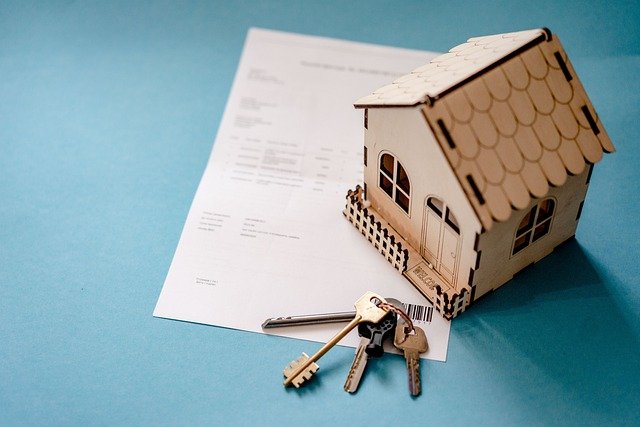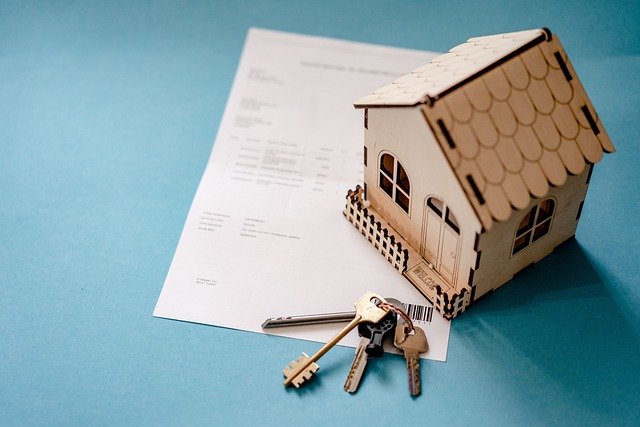Exploring the World of Bank-Owned Homes: Opportunities and Considerations
Bank-owned homes, often referred to as real estate owned (REO) properties, are residential properties that have reverted to the bank’s ownership after an unsuccessful foreclosure auction. These homes can offer unique opportunities for buyers looking for potential value in the real estate market. When a homeowner defaults on their mortgage, the bank initiates a foreclosure process. If the home does not sell at auction, it becomes a bank-owned property. These homes are then listed for sale, often at competitive prices, as banks aim to recoup their losses.

Bank-owned homes, also called foreclosures or REO (Real Estate Owned) properties, enter the market when homeowners default on their mortgage payments and the lender repossesses the property. These properties often attract buyers looking for potential discounts and investment opportunities. However, navigating this specialized market requires understanding its unique characteristics, processes, and potential pitfalls.
Understanding Foreclosures and Bank-Owned Properties
Foreclosure occurs when a homeowner fails to make mortgage payments, prompting the lender to take legal action to reclaim the property. This process typically involves several stages, beginning with missed payments and ending with the bank taking ownership. Once the bank possesses the property, it becomes an REO property available for purchase. Unlike short sales or pre-foreclosures, bank-owned homes have completed the foreclosure process, with the previous owners no longer involved in the transaction. This clean title situation can make bank-owned homes more straightforward to purchase than properties in earlier stages of foreclosure.
How to Find Bank-Owned Homes in Your Area
Locating bank-owned properties in your area requires specific search strategies. Many real estate websites offer filters for foreclosures and bank-owned properties. Local real estate agents specializing in distressed properties can provide access to these listings, sometimes before they appear on public platforms. Banks also maintain REO departments with property listings on their websites. County records and legal notices can reveal upcoming foreclosures. Additionally, driving through neighborhoods to spot vacant homes with bank notices can uncover potential opportunities before they’re widely marketed.
Benefits of Purchasing Foreclosed Properties
Bank-owned homes often come with significant price advantages compared to similar properties in the same neighborhood. Banks are typically motivated to sell these non-performing assets, potentially creating room for negotiation. Buyers usually receive clean titles, as banks clear most liens before listing the property. Unlike buying at auction, purchasers can inspect bank-owned homes before making offers. Many lenders offer attractive financing options for their REO properties, sometimes with reduced down payment requirements or closing cost assistance. For investors, these properties can provide excellent opportunities for rental income or renovation and resale.
Challenges and Risks of Bank-Owned Properties
Despite their advantages, foreclosed homes come with unique challenges. Many are sold “as-is,” meaning buyers assume responsibility for all repairs and renovations. These properties often suffer from deferred maintenance or damage from previous owners, vacancy, or vandalism. The buying process can be slower than traditional purchases, with more paperwork and bank requirements. Competition can be fierce for well-priced foreclosures in desirable areas, sometimes resulting in bidding wars. Additionally, some properties may have occupancy issues requiring legal eviction processes after purchase.
The Process of Buying Bank-Owned Homes for Sale
Purchasing a bank-owned property differs from standard real estate transactions. Buyers should first secure financing pre-approval to demonstrate serious intent to sellers. Professional inspections are crucial due to the as-is nature of most sales. Working with real estate agents experienced in foreclosures can provide valuable guidance through the specialized paperwork and procedures. Banks typically use their own purchase contracts rather than standard real estate forms. The closing process may take longer, as bank approval processes often involve multiple departments and decision-makers.
Financial Considerations When Buying Foreclosures
When evaluating foreclosed properties, buyers must look beyond the purchase price to understand the total investment required. Renovation costs can significantly impact the overall value proposition. Financing options vary, from conventional mortgages to specialized renovation loans like FHA 203(k) programs that combine purchase and renovation costs. Property insurance may be more expensive for previously foreclosed homes. Buyers should also consider potential property tax reassessments that might occur after purchase and renovation.
Prices, rates, or cost estimates mentioned in this article are based on the latest available information but may change over time. Independent research is advised before making financial decisions.
Preparing for a Successful Bank-Owned Home Purchase
Success with bank-owned properties requires thorough preparation. Assemble a team including a real estate agent experienced with foreclosures, a home inspector familiar with distressed properties, and a contractor who can provide reliable renovation estimates. Research the property’s history through title searches and public records to understand why it was foreclosed and identify potential issues. Set a realistic budget that accounts for purchase price, renovation costs, holding costs during renovation, and a contingency fund for unexpected problems. Being prepared to move quickly when the right property becomes available can make the difference between securing a good deal and missing an opportunity.
Bank-owned homes represent a significant opportunity for buyers willing to navigate their unique challenges. While they often offer price advantages over traditional listings, they require additional due diligence, flexibility, and sometimes substantial renovation investments. By understanding the foreclosure process, researching properties thoroughly, and working with experienced professionals, buyers can successfully navigate this specialized market segment and potentially find valuable properties at below-market prices.




